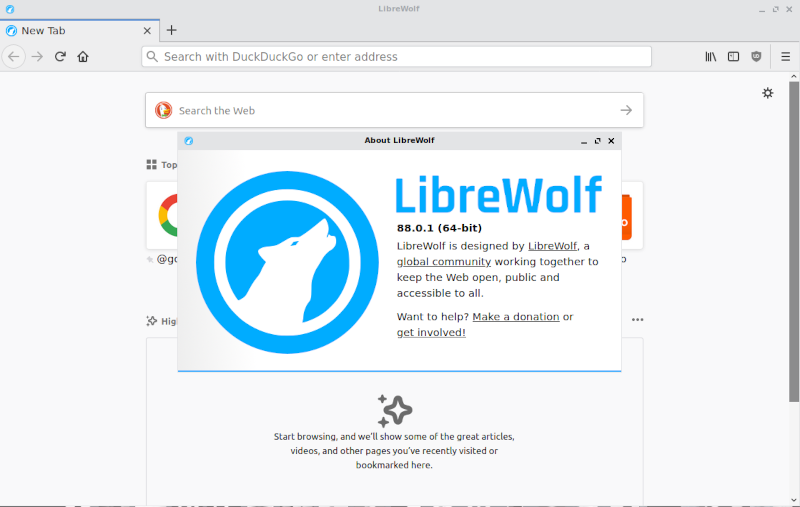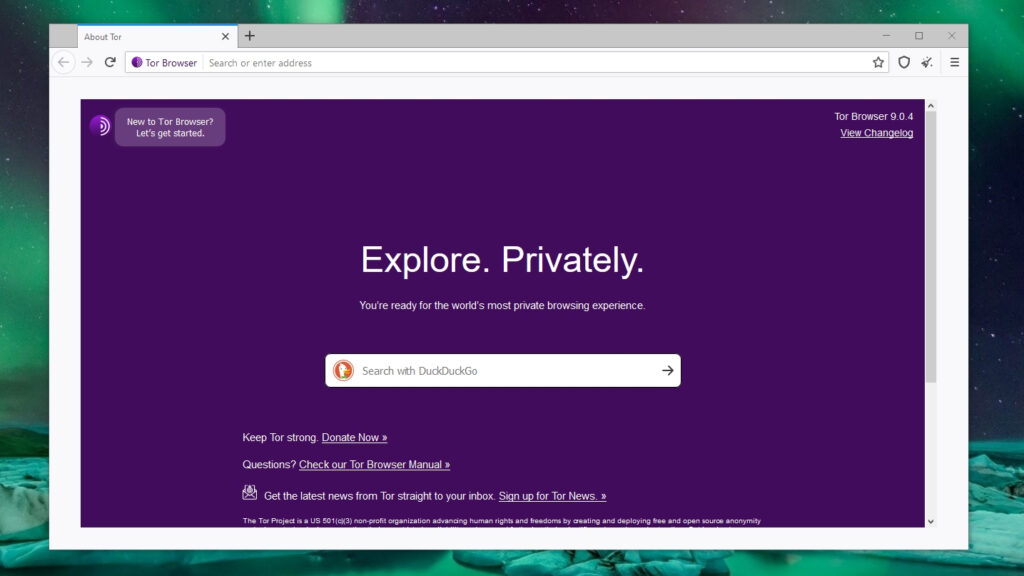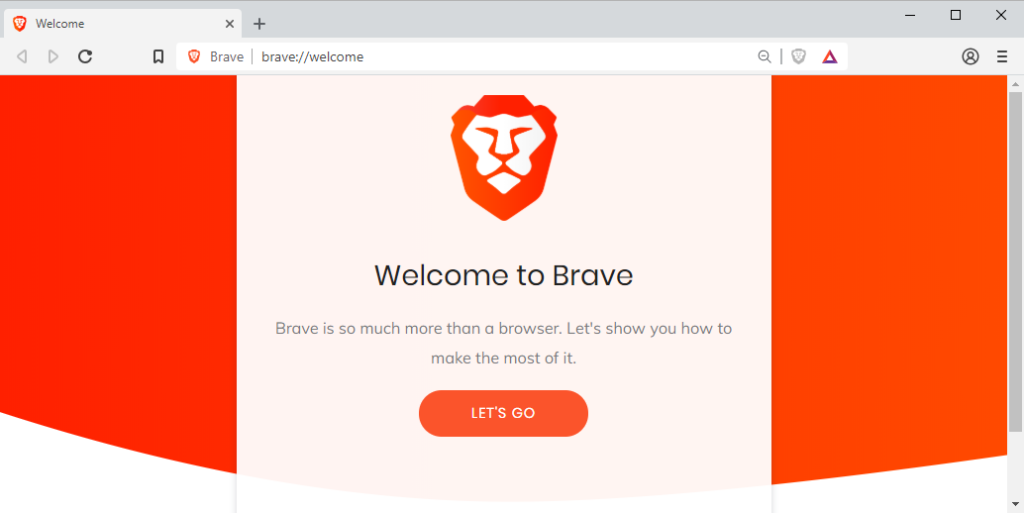We may earn a small commission if you choose to purchase from our links (at no extra cost to you!)
10 Best Security Browsers

In today’s world, having a secure and private browser is more important than ever. As the internet becomes an increasingly integral part of our daily lives, it’s essential to protect our personal data from prying eyes.
Unfortunately, many of the most popular browsers, such as Google Chrome, Firefox, and Safari, collect vast amounts of user data and use it for targeted advertising or other commercial purposes. This means that everything from your browsing history to your autofill information, login credentials, and cookies could be used to build a detailed profile of your online activity.
Even using the so-called “incognito” mode does not fully protect your privacy, as your IP address and online activities are still visible to your internet service provider and other third parties.
Using a secure browser is an effective way to safeguard your personal data and protect your privacy online. A secure browser is designed to minimize data collection, block third-party trackers and ads, and provide encrypted connections to websites to prevent eavesdropping and data theft.
There are several secure browsers to choose from, each with its unique features and levels of security. Some popular options include Tor Browser, Brave, and Mozilla Firefox with privacy add-ons. It’s essential to choose a secure browser that fits your needs and preferences, whether you prioritize speed, ease of use, or advanced privacy features.
The Security Browsers
The two main aspects of a browser that we will look at are:
- Privacy: The amount and type of data the browser is capturing off of you and where the data is being sent.
- Security: Can the browser protect users from vulnerability and exploits.
There are many browsers out there to choose from. However, there is no “best” browser for all it depends on you and your desires.
That said, here are the most secure browsers:
1. Brave - Most Secure & Private
The Brave browser is a free and open-source browser that was developed by Brave Software, Inc. It’s based on the Chromium browser with additions such as speed, security and privacy-focused featured all by default. It offers a built-in automatic advertisement blocker and anti-web trackers features enabled by default. A significant and unique feature that Brave offers are a personal choice that allows users to enable optional ads. By enabling these optional ads users can expect to receive Basic Attention Tokens aka BAT (cryptocurrency). Users may also contribute to websites and content creates with BAT.
The developer of Brave is Brandon Eich who is also a former employee of Mozilla (Firefox).
Essentially the Brave browser is an open-source project that is based on Chromium. It offers great out-of-the-box privacy & security settings such as:
- Built-in script blocker
- Advertisement & tracker blocker default
- Enables HTTPS Everywhere (automatic HTTPS connection)
- Access to Tor network
- Restricts third-party storage
Brave offers one of the easiest default settings for maximum privacy & security out of any browser we tested. This makes it desirable to those who don’t have enough time or experience to configure it themselves. The browser is also compatible with Chrome extensions making it an amazing Google Chrome alternative.
Users are able to access the Tor network by opening a new window with the Tor option.
Brave Rewards (optional) is an innovative way of assigning value to the attention of users and the ability to connect them to content creators and advertisers. Upon joining Brave Rewards the browser will be counting (locally on your device) the amount of attention you give to certain sites and advertisements. Monthly, BAT tokens will be distributed by Brave Rewards into your local browser-based wallet. Content creators have the ability to be tipped by users and have the ability to withdraw BAT into a currency of their choice. Learn more about Brave Rewards.
2. Modified Firefox
Firefox is a free, cross-platform, and open-source web browser that was developed by the Mozilla Foundation. The browser offers strong privacy & security protection features, frequent upgrades, and a huge opportunity for customization and personalization. That said it’s also fast and lightweight and comes with many privacy-friendly options for customization.
With default settings, Firefox isn’t the best browser for privacy… however it can be customized to your privacy liking. Firefox has the option of adding browser extensions that can positively impact your browsing experience. That said, here are the firefox noteworthy features:
- Supports browser extensions
- Is open-source and has been audited
- Constant updates and development
- Offers privacy features and open customization.
Here are the Firefox settings in which users can adjust the levels of privacy:



The options for privacy are Standard, Strict, and Custom.
3. DuckDuckGo - Search Engine
DuckDuckGo is a privacy-focused search engine that openly supports consumers’ privacy rights and has recently hit a major milestone of 100 million user searches within a day. The rise of privacy-focused alternatives that combat popular products such as Chrome and Messanger shows that there is an increasing demand for privacy-focused applications.
On iOS and Android devices, DuckDuckGo offers a privacy browser that comes with many privacy-focused features set up for you on installation. Here are some features that the DuckDuckGo browser offers to users:
- High performance
- Tracking protection
- Data management and encryption upgrades
4. LibreWolf



LibreWolf is a Firefox fork that aims to deliver a private, secure and freedom-oriented alternative when compared to other browsers. Negative privacy aspects of Firefix such as telemetry, annoyances and data collections were removed.
Essentially, Librewolf is for those who don’t want the distracting features of Firefox and desire a private web surfing experience.
Here are some LibreWolf features:
- No sponsored shortcuts
- Enables HTTPS-only mode (default)
- Tracking protecting set to “Strict”
- Removes telemetry
- No cloud sync on Firefox account
- uBlock Origin added to block ads/scripts
- No “add to pocket” button
If you’re interested in LibreWolf here are some installation instructions on their website and GitLab.
5. Epic Privacy Browser



The idea of the Epic browser was that it would have every possible security measure in place by default. The browser will block cookies, advertisements, data-tracking website analytics, anti-track requests, and use DuckDuckGo right from the beginning. All these settings are fully customizable however turning features off may reduce your level of privacy while browsing.
Since Epic takes user privacy seriously they deliver on their promise of being an extreme privacy-centric browser. This means that there is no auto-syncing, no auto-fill, no plugins, no spell-check since all of these features are either unavailable or shut off by default.
Epic browser proxy searches using their servers as a resource, the browser also prioritizes SSL connections automatically. It also providers analytics of how many cookies have been blocked and where they would have been sent.
The browser doesn’t store data such as user history, database info, login data, and the list goes on. It doesn’t cache data and doesn’t offer autosuggestion while filling out forms. With all these features, the Epic browser can be difficult to use for many users, but if you’re looking for privacy it definitely is one of the safest browsers in existence.
The one downside to Epic is that it’s based on Chromium. This means it isn’t an open-source project that is available to the public. The Chromium code was created by Google meaning there is no guarantee for the future privacy of the browser.
The browser is both available for Windows and macOS.
6. Tor Browser



The Tor browser is an open-source and free software used for anonymous communication. Tor is short for The Onion Router. The way it works is by directing internet traffic through a worldwide overlay network run by thousands of volunteers. Using the browser makes it difficult to identify the internet activity with the specific user. The purpose behind Tor is to protect the privacy of users and to protect their freedoms and ability to communicate anonymously. However, the browser does have some disadvantages…
Since the Tor network routes traffic over numerous hoops the download speeds can be incredibly slow. There are also issues with script blocking. The major drawbacks are the dependence on the US government, dangerous exit nodes, slow performance, and there are many sites that restrict IP addresses coming from the Tor network.
There are some ways to go around the disadvantages to some degree. You can use the Tor browser with the Tor network disabled leaving you with positive privacy benefits without the issues. Make sure to run a trustworthy VPN while exposed.
7. Ungoogled-Chromium Browser



8. FreeNet



Freenet is a peer-to-peer platform created for anonymous communication. It offers censorship-resistance communication as the platform uses unique encryption and a decentralized network to store and transfer data. Freenet offers a suite of free software used for publishing and communicating online without the fear of censorship or restrictions.
Its method of operating is similar to the Tor browser as it offers its own “Freenet” network in which content is only accessible using the Freenet browser.
The browser can also be used for anonymous file-sharing. Files that are sent through the network are split into smaller files and stored in numerous network nodes. The downside of this feature is that both download and upload speeds would be slower, but this would increase anonymity significantly.
The browser also supports both Darknet and OpenNet connections. OpenNet operates in a similar way to Darknet, however, the only difference is that connections made on OpenNet are those that are connected to random users rather than the ones who know one another.
Freenet only allows you to open Freesites that are hosted on the network. The content within these sites is only static content due to the slower bandwidth. Freenet is an anti-service solution that is geared toward a more knowledgeable user.
Secure browser for mobile devices
Most of the browsers recommended above in the article are also available for mobile users (both iOS and Android)
Here are some of the best options that are available:
- Bromite (Android)
- DuckDuckGo
- Brave
- Firefox Focus
Even Firefox (standard) on mobile devices allows users to customize and config to their liking.
Recommended browser extensions
Aside from improving browser settings, users can also use numerous extensions to improve their browser’s security and privacy.
- Brave
- DuckDuckGo
- Firefox Focus
- Bromite
Firefox (regular version / unmodified) is also a good option to use on mobile devices due to customization and configuration features.
Secure browsers and privacy conclusion
Using a well-structured secure browser is important for protecting crucial data while surfing around the web.
There isn’t one perfect browser that fits everyone, each browser is curated towards a certain type of internet user. I strongly recommend you conduct deeper research into browsers that encompass your interests.
Aside from having a good browser another important aspect of web experience is having an ad-free or at least ad-minimal experience. This can be achieved by using a good ad-block (I recommend UBlock Origin, plus it’s free!). Ads can be harmful since they collect data on you. Such as search activity and browsing data which can be used later to target you.



